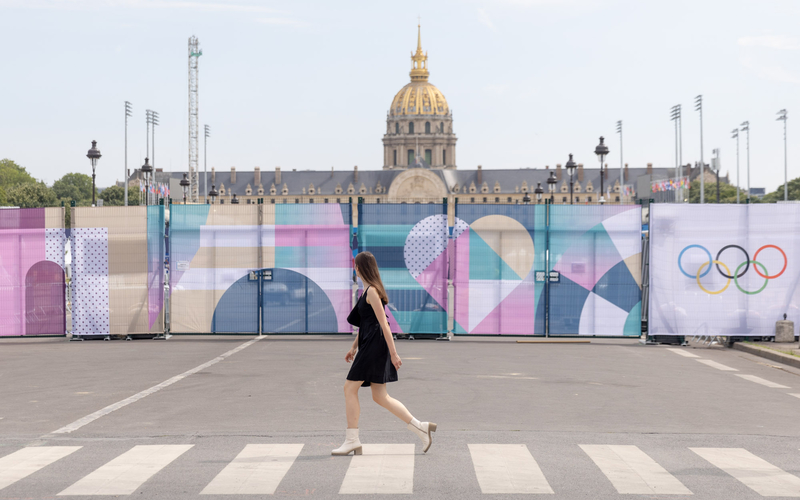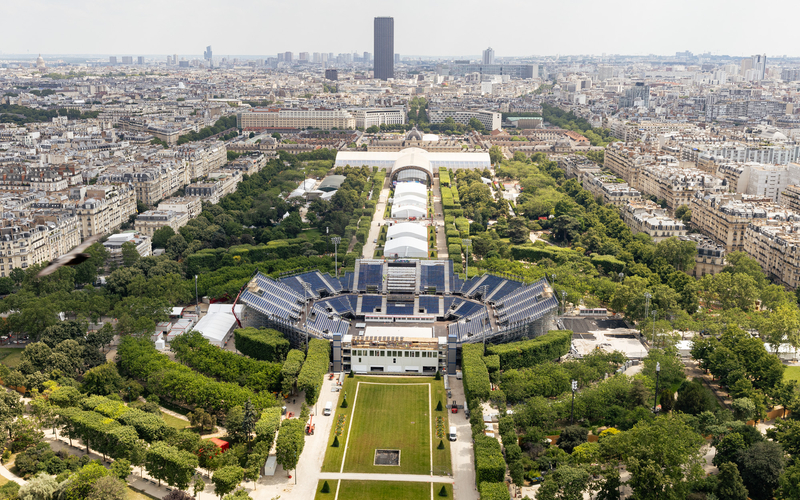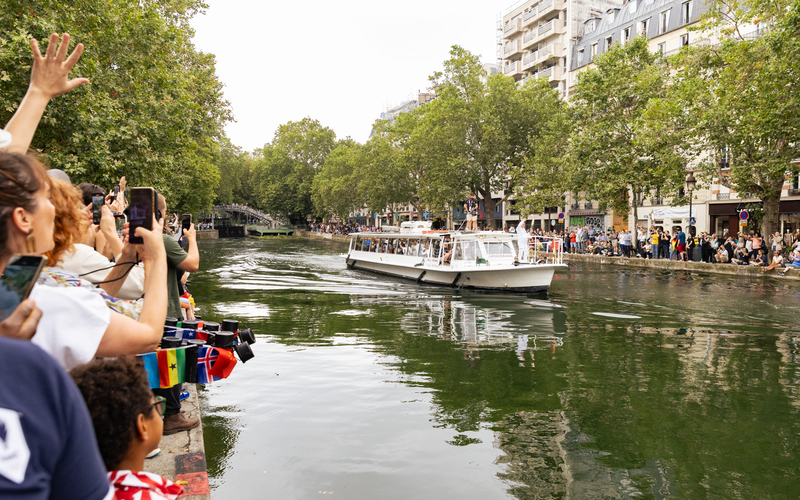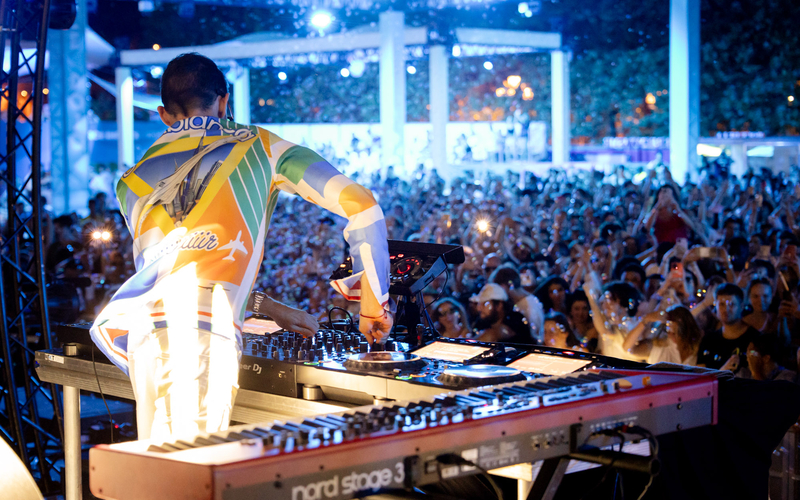Security Measures to be Observed
Actualité
Mise à jour le 25/11/2015
Attention, cet article n'a pas été mis à jour depuis le 25/11/2015, il est possible que son contenu soit obsolète.
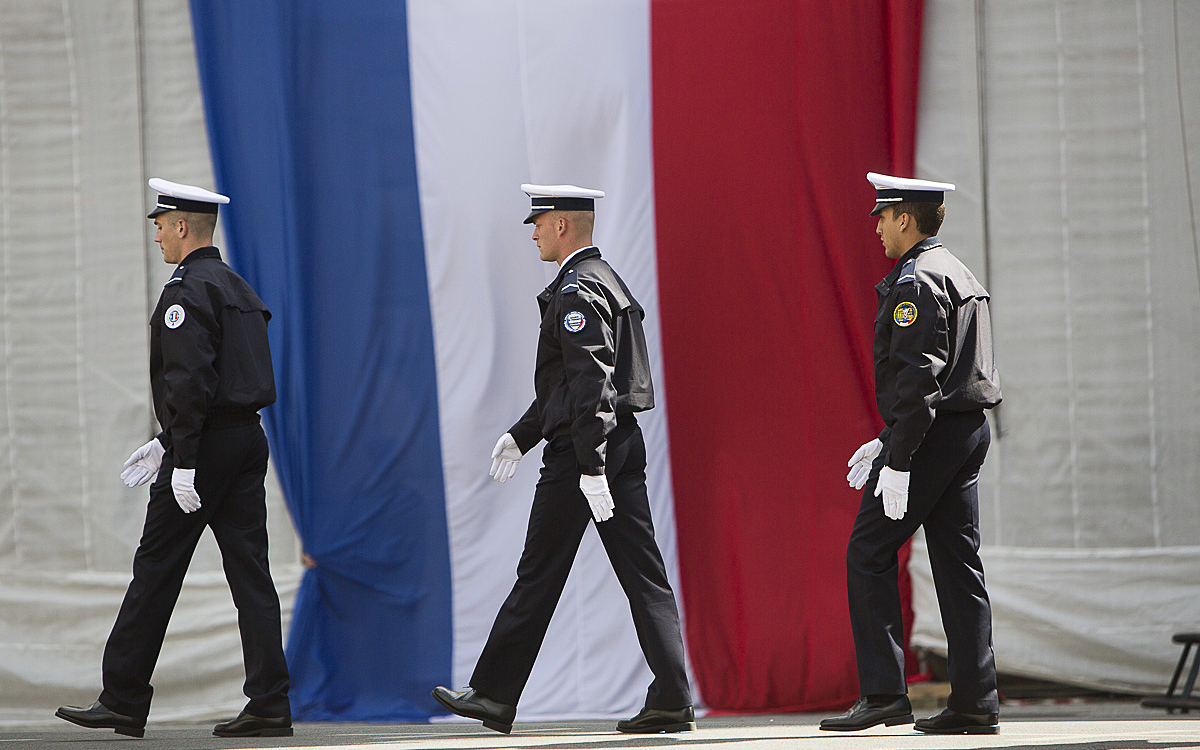
Sommaire
Revenir en haut
Addressing the Council of Paris on Monday 23 November, Anne Hidalgo announced 14 new measures which will strengthen the City’s security capacities in order to protect Parisians and visitors.
14 new measures for Paris
While the security of Parisians and visitors fall under the aegis of the Prefecture of Police, the City of Paris authorities provide strong backing for the work of the law enforcement agencies, with a substantial financial contribution and the deployment of many municipal employees in supporting roles alongside police officers. Initiatives have been launched in all areas of the city to ensure the safety of public places and municipal facilities.
“The attacks which once again rocked Paris on 13 November make it imperative that we speed up the implementation of the new security measures decided upon since January, backed up by further new measures,” announced Anne Hidalgo this Monday.
The Mayor of Paris and her deputy, Colombe Brossel, are committed to taking action on all fronts:
More security agents, with better equipment
1. 30 more security agents will be recruited in 2016 to expand the DPP (Directorate for Protection and Prevention) team: the majority of these new recruits will be security guards, along with several engineers specialising in the prevention of crisis situations (security analysts);
2. All agents on the ground, even on a temporary basis, will be issued with bulletproof vests;
3. Protective films will be applied to the windows of municipal vehicles, to make them shatterproof if struck by a projectile;
Better protection and surveillance for public places
4. 165 new security cameras will be operational in 2016, instead of being phased in over the next two years. The city’s conservatoires and twenty more sports facilities will be connected to the central security command centre;
5. Daycare centres, which are already the focus of heightened surveillance by the city authorities, will now be officially added to the list of priority sites covered by the ‘Vigipirate’ strategy;
6. Videophones and security airlocks will be installed in daycare centres and schools, and work to reinforce perimeter fences will be stepped up;
7. One-way reflective films will be applied to the windows of establishments looking directly out onto the street;
8. A new security protocol will be put in place for the city’s conservatoires, with necessary measures taken on a case-by-case basis;
9. Attack alert buttons will be installed in conservatoires and libraries where deemed necessary, based on those already installed in the city’s museums;
10. Security airlocks and electric-locking doors will be installed in more isolated sporting facilities;
Paris’ innovation ecosystem mobilized against terrorism
11. A ‘hackathon’ will be held in January 2016 with a view to developing new solutions for crisis management and public information in the event of an emergency;
12. A new ‘Defence & Security’ platform will be established in one of the city’s business incubators, with the support of leading firms in this sector;
13. Discussions will be launched as to the possibility of creating a database of 3D scans of the city’s major cultural sites and sporting facilities, made available to the law enforcement agencies to allow them to take immediate, targeted action when required;
More information for parents
14. Parents with children in public daycare centres will receive real-time information, by text message, in the event of a crisis incident (22,000 numbers already gathered).
2015: €361 million allocated to security and preventive measures
This year the City of Paris has allocated €361 million in funding to security and preventive measures. This includes a €285 million subsidy to the Prefecture of Police, almost a third of its total operating budget, which will be maintained in 2016.
The Directorate for Protection and Prevention (DPP) currently employs over a thousand agents. They provide day-to-day surveillance and protection for public spaces and municipal buildings, an essential requirement to ensure that the city’s residents can go about their business safely. The central security command centre, which works in close partnership with the Prefecture of Police, keeps watch over almost 600 sites 24/7.
Every year the city invests heavily in improving the security of municipal facilities: installing videophones and security airlock doors at the entrances of schools and daycare centres, clearing the areas around public buildings to restrict parking and remove bins, installing ‘anti-attack’ warning buttons in museums, etc.
New measures introduced after the January attacks
Following the attacks in January 2015, Anne Hidalgo announced further action. All municipal security agents were issued with bulletproof vests, and 500 extra tear gas grenades were ordered. All 1700 addresses on the Vigipirate protected list were audited, and 85 were identified as being in need of extra protection. An amendment was added to the video surveillance strategy adopted by the Council of Paris, bringing in 165 new security cameras within the next two years, on top of the 1044 already in operation.
The City has also began installing 30 new videophones at Paris’ daycare centres, as well as conducting 88 security operations in primary and middle schools. Further training has been provided to staff, focusing on emergency procedures and evacuation protocols, while efforts to detect radicalisation have been ramped up.
Security Measures to be Observed
Following the attacks which hit Paris on 13 November 2015, the government has decreed a state of emergency. This requires a reinforcement of the existing VIGIPIRATE security measures. At this particularly difficult time, we must remember that security is everybody’s responsibility, and demands our constant vigilance.
The State of Emergency
By government decree, a state of emergency was declared throughout the whole of France on 14 November 2015. This affords extra powers to the law enforcement agencies, in particular the capacity to:
-
Restrict freedom of movement by establishing protected zones or security cordons, or by closing off certain places to the public (curfew).
-
Prevent persons judged to be likely to disturb the peace from accessing or remaining in certain parts of the country
-
Requisition private property and persons
-
Ban certain public gatherings or temporarily close certain meeting places
-
Order administrative searches of private property in the presence of the judicial police, at any time of day or night
-
Place under house arrest any person whose activities are deemed to be a threat to security or to the maintenance of law and order
In Paris, this includes a ban on all public gatherings which will remain in place until Sunday 22 November 2015 at midnight. However, gatherings on private property are permitted subject to the responsibility of the organisers, who are responsible for taking the necessary security measures.
Reinforcement of the Vigipirate security strategy
The Vigipirate security strategy is an important tool in the fight against terrorism. It is a system for detecting, preventing and combatting all activities liable to threaten national security. It requires constant vigilance from all public representatives, with the support of the general population. Vigipirate is currently at ‘Attack Alert’ level.
The city authorities will issue further information as and when these circumstances change.
Reinforced presence on the ground
A greater level of vigilance and security is required to protect public transport, schools, daycare centres, public facilities, vulnerable or symbolic religious sites, major tourist attractions, department stores, shopping centres and venues hosting sporting and cultural events, among others.
In this context, extra patrols have been ordered and police resources are concentrated on providing visible security. 7000 soldiers have also been deployed in the Ile-de-France region since the attacks of January 2015, with an extra 3000 brought in after the events of 13 November 2015.
The City of Paris will also contribute to this security strategy, within the scope of its authority, by reassuring the public with security guards and night-watchmen concentrated primarily around schools and other facilities used by children (crèches, sporting and cultural facilities, parks and gardens).
Security is everybody’s responsibility: what you can do
Actions you can take:
-
Comply with security agents during searches
-
Notify security officials of any unusual objects which appear to have been left unattended
-
Notify security officials of any strange behaviour which could lead you to believe that an attack or incident is imminent
-
Check all deliveries and ensure that all delivery vehicles have the necessary paperwork before allowing them to enter the premises (authorisation, ID documents)
-
Keep a close eye on the access rights of contractors working on public premises
-
Organise regular security patrols of sensitive or vulnerable areas and, where necessary, provide extra security guards, particularly for the surveillance of underground car parks
-
Do not allow items to pile up (cardboard boxes, pallets, bags etc.) inside or in the immediate vicinity of buildings
Bear in mind:
-
Never leave baggage unattended
-
Do not park in areas where parking is forbidden by the Vigipirate regulations
-
Report all suspicious objects or behaviour to security agents or the police
-
Always comply fully with the instructions of emergency services and law enforcement officers
-
Always abide by any official government instructions issued via the media
-
In the event of an emergency – and only in an emergency – call the police on 17
-
Call 197 if you have any information which may be of use to investigators.
Votre avis nous intéresse !
Ces informations vous ont-elles été utiles ?
Attention : nous ne pouvons pas vous répondre par ce biais (n'incluez pas d'information personnelle).

